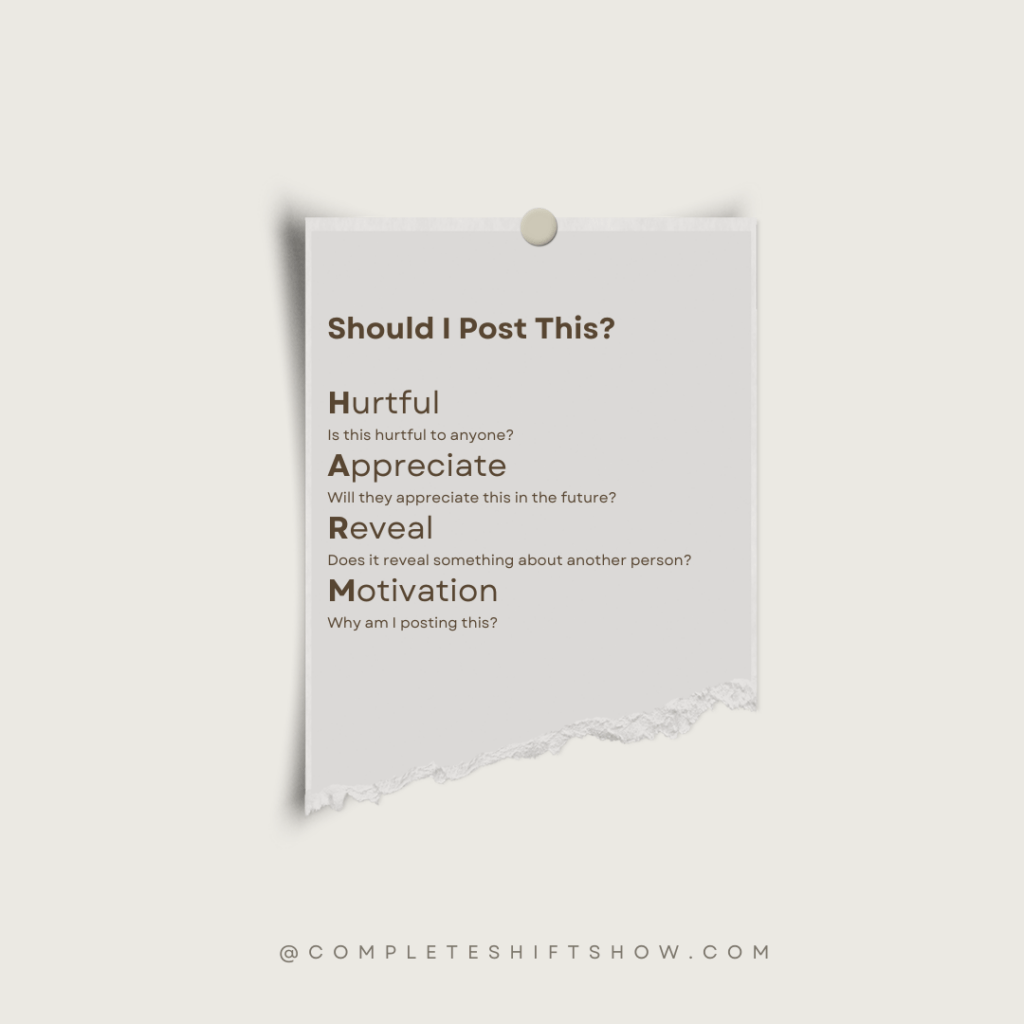Recently a video of giving gone wrong went viral.
The background: a family who monetizes social media by sharing moments from their day became the target of controversy when one of the children was filmed opening a mail package, sender not identified. The seven-year-old had been sent a box of “Slim Tea” and you can see mixed reactions from her siblings. An adult in the background yells, “Thank you” and her sister tells her to just be happy. The (edited) video shows the little girl discovering what she is holding and says it is something she needs. Scene.
Social and news media lit up with reactions. At first blush, of course, it is wrong to gift a child who appears to have an above-average BMI with a diet product. The issue that emerged was that folks started reacting to things that the video did not reveal. That’s a different post, suffice it to say that before one comments on something, they should do some research. But it opens an important discussion about what it means to shame a child, especially when it comes to social media. So let’s shift the script.
What does it mean to shame a child? Telling embarrassing or revealing stories in an attempt to manipulate a child’s attitude or behavior constitutes shaming. Shaming also happens when we take what should be a private conversation about a child’s actions, behavior, and consequences and make it public by sharing it.
Many of us share information about our kids online, is there a difference between sharing and shaming? Sharing is news or cuteness. Shaming has to do with the intent to manipulate or hurt someone. If you would consider putting it on an annual holiday card, that’s sharing. We do it because come on, our kids and fur babies are the cutest. Sometimes it’s also essential to share news online so we can reach more of our friends and family without repeating ourselves.
Shaming may be immediate, or it may lie in wait to be uncovered in the future. Posting a video of a child having a tantrum, or fighting with a sibling can not only make them feel terrible, they also have to worry about the video being around forever. Bathtime photos that are sweet today may mortify our children if they are uncovered by others when they are in middle school.
When does a digital footprint begin for a child? The minute you add their name to a post it begins. We build many foundations for our children, among them is the digital footprint that will follow them for life. We teach our children how important it is that they don’t share information with strangers. What if we have already done that for them?
How should we decide what to post about our kids? The bigger the audience, the smaller the share. There’s a group of people who want to tell us we should raise kids, it’s called everyone and they meet on the internet. If you are looking for privacy it’s important to know you will not get it there. Before sharing any post, ask yourself if you will be doing HARM:

Will the post be:
HURTFUL to anyone?
Will they APPRECIATE the post in the future?
Will it REVEAL something that is not ours to share?
What is the MOTIVATION for sharing?
Someone told me we should actually only say about about 20% of the things that come out of our mouths. Ditto the things that we say via keyboards.
What should we do if we see a child being shamed (online/in person)? If we see people we know berating or shaming their child, a gentle hand on the shoulder and asking, “Are you okay?” is often enough to calm the situation in the moment. Intervening with people who are strangers can tricky, but if a situation seems volatile, it may warrant the same quiet intervention. If the situation looks abusive it’s important to find help for the child. Mandated reporters must always report suspected abuse. It may just be a case of a parent losing their temper, which happens because we are human! It is not our job to investigate, but mandated reporters must report. Email me if you have questions about reporting a situation to your state’s Child Line.
What if our kids tell us that someone is being shamed in school/online? Fact: kiddos are notoriously awful reporters. I had a call from a mom once who told me she nearly had a stroke when her daughter told her that her teacher was saying the F-Word in school. Like, a lot. “Mummy she says it all the time, that we always have to give our best EFFER.”
You can see this play out with kids playing, especially siblings or cousins. “He hit me….She’s touching me!” If you hear about something happening at school or online, go to the adult who is closest to the situation and let them know, using your child’s words, what was reported to you. If something is happening online with someone you know, asking if they are okay opens the door to a conversation. If it’s someone you don’t know, the best way to diffuse a situation is to not add fuel to the fire unless someone is at risk for immediate harm.
When something goes viral, should we add to the controversy? How can we do so productively? There are a lot of yak mouths out there my friends. If there is a thought about a viral post (such as the Slim Tea post), it’s been shared and 9/10 times anything you say will add to the noise. Most of the time we don’t have enough information to know the truth about what happened. Rarely do folks have the expertise to make an informed, helpful comment. And it’s hardly ever necessary to share, unless it’s something super funny or cute, then send it to me!
In short, think before you speak. Listen before you decide. And do no HARM.

